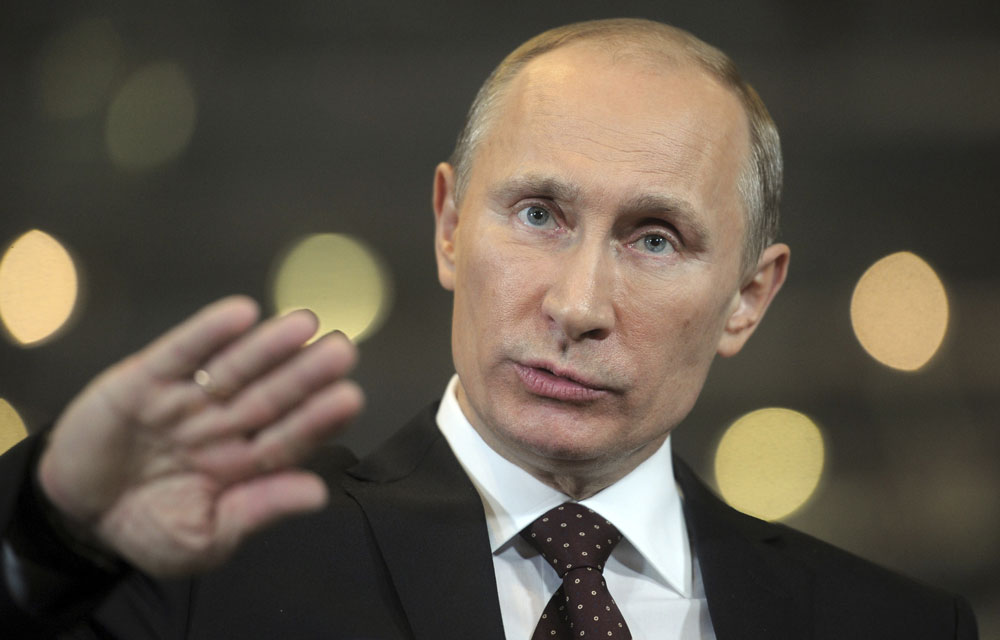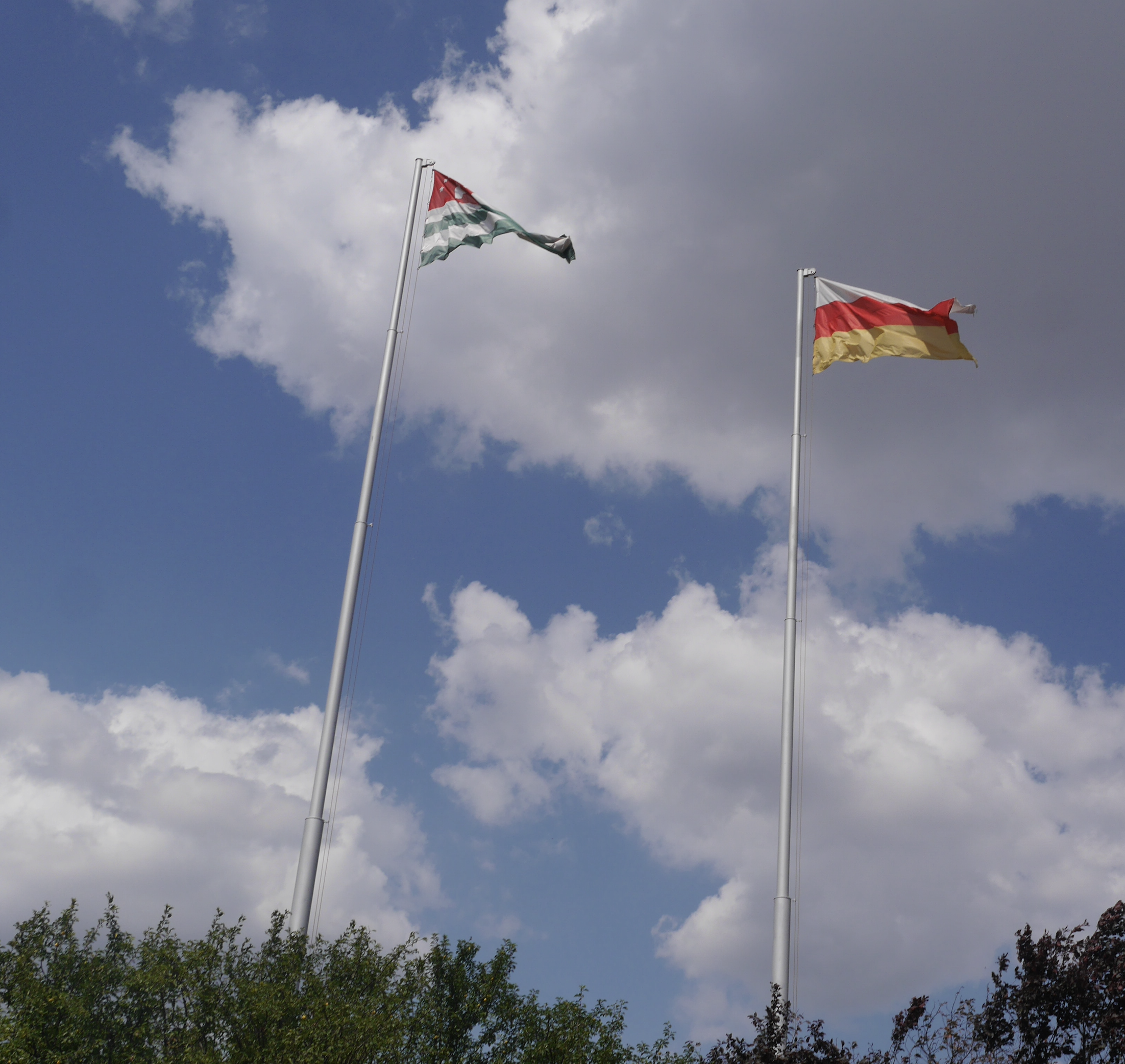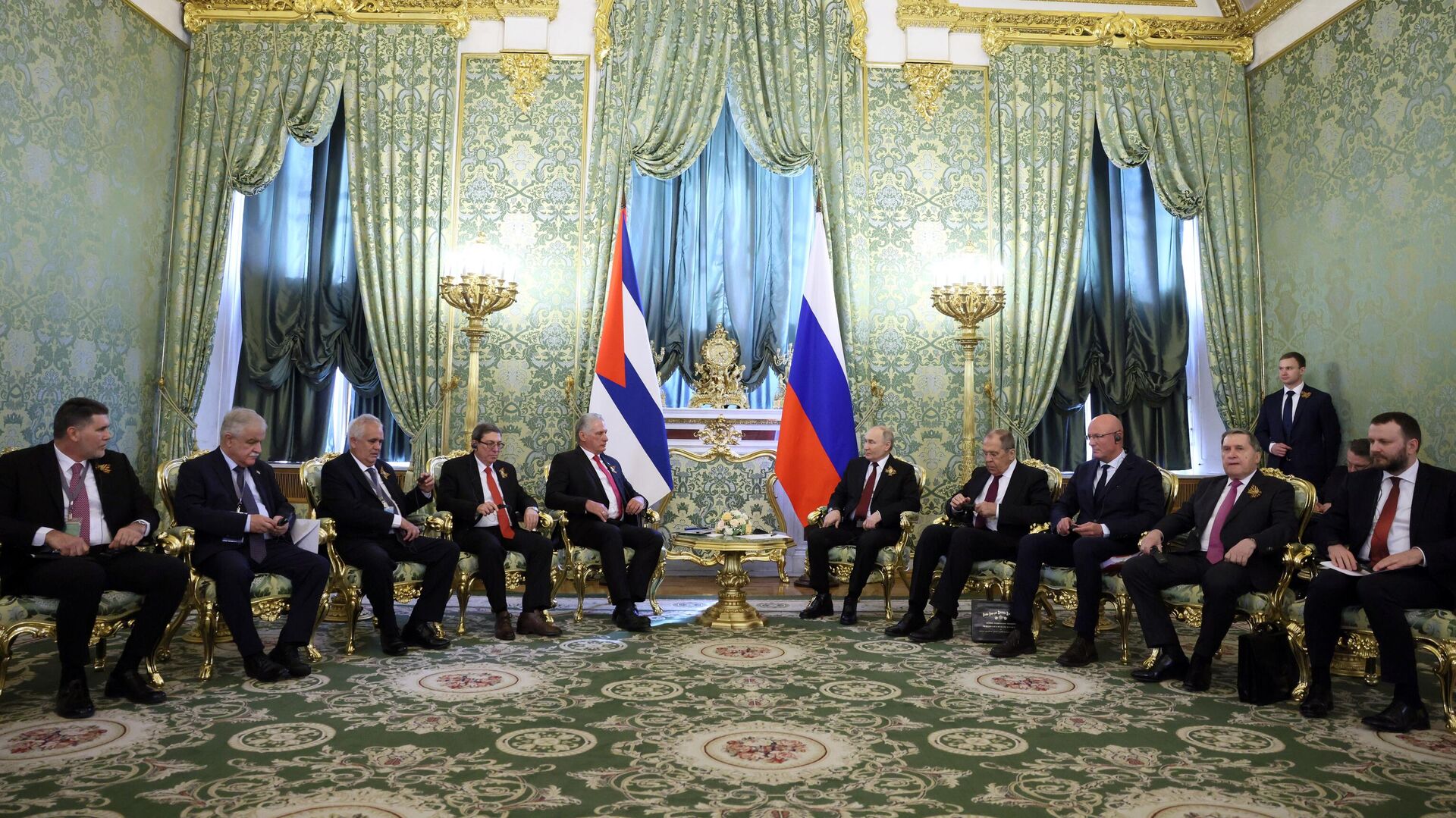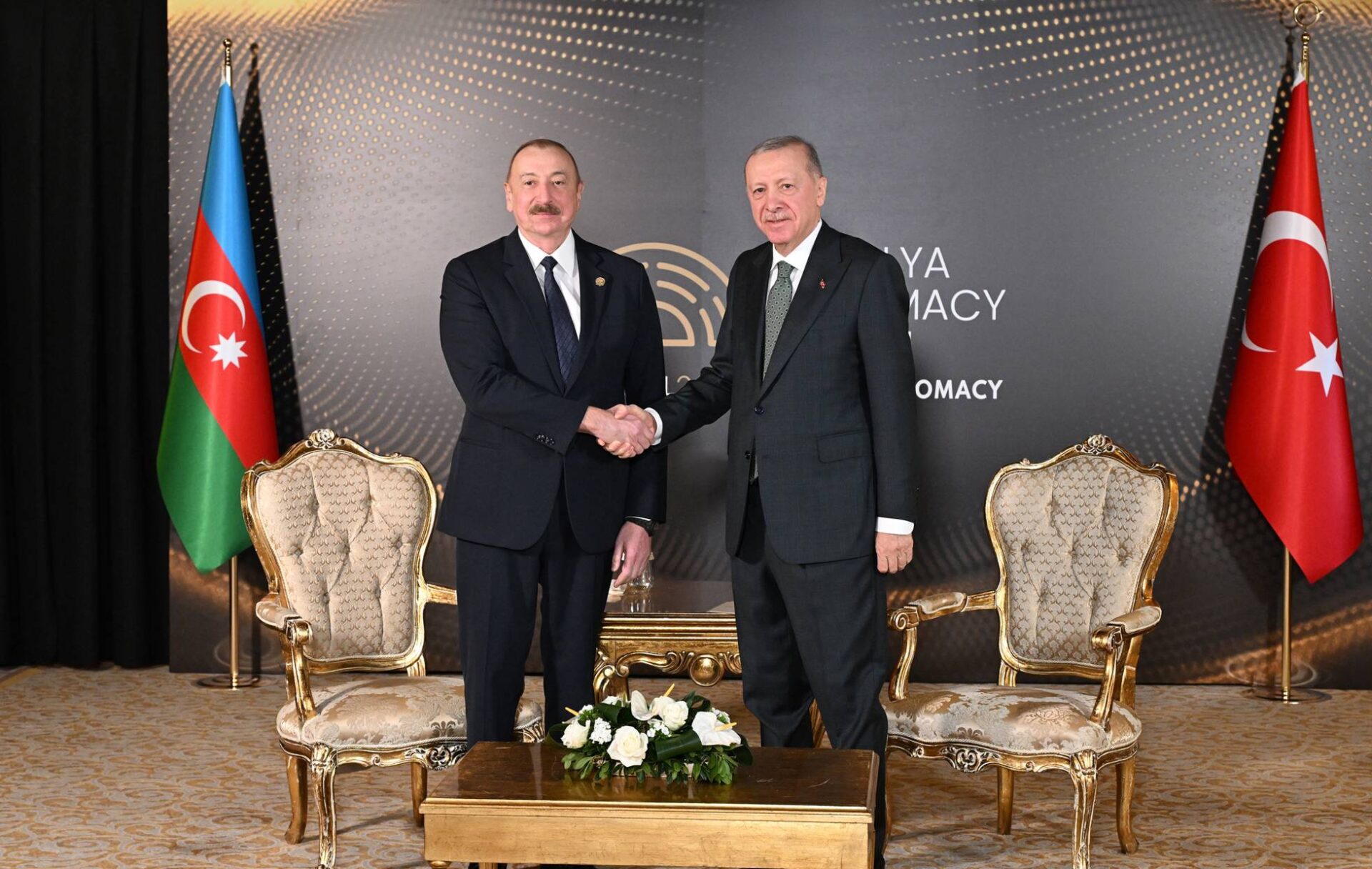
Russia Spurns Ukrainian Offer of Constitutional Status for Donetsk-Luhansk
Russia Spurns Ukrainian Offer of Constitutional Status for Donetsk-Luhansk
Russian President Vladimir Putin has rejected Ukraine’s offer of constitutional status for the Donetsk-Luhansk territory as unacceptable. Addressing an international economic forum in Vladivostok, on his way back from China today (September 4), Putin dismissed Kyiv’s offer as inadequate in content; unilateral, instead of being negotiated by Kyiv with Donetsk-Luhansk; and as contraventions to the Minsk Two armistice on Ukraine’s part on both counts (Interfax, September 4).
Russia’s Foreign Minister Sergei Lavrov had rejected Kyiv’s offer on September 1, one day after the Ukrainian parliament’s approval of the constitutional amendment in the first reading. The Donetsk-Luhansk “people’s republics” were the first to spurn it, within hours of the Ukrainian parliament’s August 31 vote.
This crescendo of rejections and their scathing tone had evidently not been anticipated in Berlin, Brussels or by President Barack Obama’s administration in Washington. They had all pressured President Poroshenko and the Ukrainian parliament to appease Russia with this offer; and in the process, to put Poroshenko and his supporting coalition’s domestic political standing at risk (see EDM, August 6, 10, September 2, 3). It turns out to have been for naught.
Putin now demands a new negotiation from scratch on the constitutional status of Donetsk-Luhansk, and not only. Putin’s September 4 statement dismisses Ukraine’s constitutional amendment as “purely declarative, and not changing the essence of Ukraine’s structure of power.” This latter hint concerns Ukraine beyond Donetsk-Luhansk. The constitutional provision regarding Donetsk-Luhansk is packaged with the decentralization of Ukraine’s entire administrative-territorial system. Moscow wants to have its say in Ukraine’s entire decentralization process—a point that Lavrov made fully explicit in his own statement (see below).
President Putin listed four demands, to be fulfilled by Ukraine in this sequence (Interfax September 4):
1.) Kyiv and Donetsk-Luhansk must negotiate the terms of Ukraine’s constitutional amendment on that territory’s special status; 2.) the same parties need to work out Ukraine’s law on local elections by mutual agreement (the elections are due tentatively on October 25); 3.) the Ukrainian parliament has to grant a general amnesty (this would, inter alia, enable the Donetsk-Luhansk leaders and paramilitary chieftains to become legitimate politicians); 4.) and Ukraine must enact a new law on that territory’s special status, again by negotiation with Donetsk-Luhansk, which would crown the foregoing three steps (such a law would supersede and invalidate the law enacted in September 2014 and amended in March 2015 by the Ukrainian parliament, which attaches clear democracy criteria to any special status of that territory).
Whether Putin insists on a specific timetable for Kyiv to meet these conditions is not yet clear. They all stem from the political clauses of the Minsk Two armistice agreement (February 12), whose political clauses Ukraine is supposed to implement by the end of December; whereas Russia and its proxies are not held to deadlines on the military clauses.
Lavrov added clarifications in his speech opening the academic year at the Moscow State Institute of International Relations (MGIMO). Speaking at the diplomatic academy, Lavrov declared that the special status of Donetsk-Luhansk (once adopted by Kyiv and Donetsk-Luhansk in “mutual agreement”) must be introduced as such into the constitution of Ukraine. Thus, the Donetsk-Luhansk authorities’ powers (among which, Lavrov cited: creating a people’s militia, appointing prosecutors, entering into special economic arrangements, among other Minsk Two stipulations) would be permanently guaranteed in Ukraine’s constitution.
Beyond that territory, however, Lavrov alluded to the federalization of Ukraine writ large, by a consensus between the West and Russia, as a would-be corollary to the Donetsk-Luhansk settlement. Citing (without attribution) “assertions that other regions of Ukraine deserve more powers,” Lavrov suggested, “We are willing to help. We have good relations with certain regions of Ukraine. Other countries have excellent relations with Kyiv and political forces in the Verkhovna Rada [Ukrainian national parliament]. If Western countries, the United States and the European Union together, with their decisive influence on Kyiv, summon all those political forces and strongly advise them to behave, then the Minsk armistice will be complied with” (Interfax, September 2).
The Ukrainian legislature approved the constitutional amendment, on August 31, in the first reading by a wide margin—265 votes in favor, out of 368 deputies attending—amid political commotion outside the parliament building (Ukrinform, August 31, September 1). The Donetsk and Luhansk “people’s republics” (“DPR” and “LPR”), however, have dismissed the vote in Kyiv as “the Verkhovna Rada’s own internal affair,” as well as “irrelevant to the ‘DPR-LPR.’ ” Meanwhile, Donetsk and Luhansk are moving apace to build elements of “statehood” and special relations with Russia (Donetskoye Agentstvo Novostey, August 31–September 4).
The “DPR-LPR” maintain that Kyiv’s debates and enactments regarding “their” territory are invalid, if Kyiv acts “unilaterally,” instead of negotiating directly with Donetsk-Luhansk. They base their position on the letter of the Minsk Two armistice, which indeed demands mutually agreed solutions—i.e., gives Donetsk-Luhansk the veto over Kyiv.
Western diplomacy looks incoherent in attempting to deal with this matter. On one hand, US, German and other European diplomats are pressuring Kyiv into unilateral concessions, needlessly complicating Kyiv’s political situation, instead of anticipating rejection by Moscow and Donetsk-Luhansk of such “unilateralism.” On the other hand, the Obama administration ensured that the Minsk Two armistice was approved by a United Nations Security Council resolution, as Russian officials are delighted to remark from time to time. And German Chancellor Angela Merkel, in her annual end-of-summer press conference, asked Kyiv to “work out the law on [local] elections in such a way as to be acceptable to the separatists” (Bundeskanzlerin.de, August 31). Those “separatists,” however, would turn into legalized and legitimized leaders, if local elections are staged and validated in the “DPR-LPR” in October, for which Western diplomacy seems inclined to set the stage.


